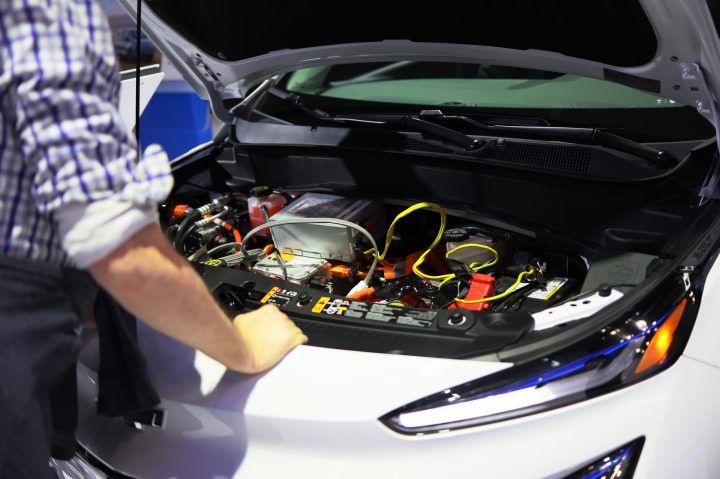
The Inflation Reduction Act wants to incentivize electric car purchases – but there’s a catch
The Inflation Reduction Act wants to incentivize electric car purchases – but there’s a catch

The climate-change provisions in the Inflation Reduction Act – passed by the Senate and to be considered by the House later this week – include a lot of financial incentives to jumpstart electric-vehicle sales and production.
There’s a $7,500 consumer tax credit for buying a new EV, $4,000 to buy a used one, plus grants and loans for EV and battery makers to help them ramp up.
But there are also some alarms being sounded about the new measures. Seth Goldstein, an analyst at Morningstar, said there’s a key requirement that will need to be fulfilled in order for an electric vehicle to be eligible for that $7,500 tax credit.
“Everything has to be assembled in the U.S. or a country with a free-trade agreement. So it incentivizes a domestic EV supply-chain from the mine to the vehicle,” he said.
Final vehicle assembly won’t be a problem for the big domestic producers — most Teslas, GMs and Fords roll off assembly lines in the U.S. But EV batteries are another matter, said Garrett Nelson at CFRA Research.
“The key materials used in EV batteries — a lot of those come from China, the Congo, countries with which the U.S. does not have free-trade partner status.”
We don’t assemble most batteries here, either. Nelson says under the bill, 70% of the EV models now for sale in the U.S. “become immediately ineligible for the federal tax credit. And then starting in 2024, when the additional battery-sourcing requirement goes into effect, none of the EVs would be eligible.”
A consortium of EV-makers has warned that the new domestic-content provisions jeopardize the industry’s target that electric vehicles will make up 40% to 50% of new vehicle sales by 2030.
Nelson said currently, EVs make up just 5% of new sales.
There’s a lot happening in the world. Through it all, Marketplace is here for you.
You rely on Marketplace to break down the world’s events and tell you how it affects you in a fact-based, approachable way. We rely on your financial support to keep making that possible.
Your donation today powers the independent journalism that you rely on. For just $5/month, you can help sustain Marketplace so we can keep reporting on the things that matter to you.

















